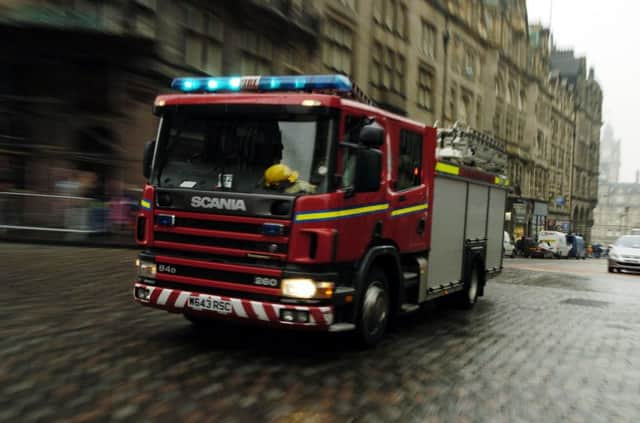Firefighters could be called to treat heart attacks


Scotland’s fire and rescue service (SFRS) chief inspector, Steven Torrie, said firefighters could play a “vital medical response role” by routinely using defibrillators on people who have suffered heart attacks.
Firefighters in Scotland do not currently respond to routine medical emergency calls, even though more than half of their vehicles are fitted with defibrillators to treat crew members who fall ill while on duty.
Advertisement
Hide AdAdvertisement
Hide AdThe report from Mr Torrie suggests firefighters should use the equipment routinely if a crew arrives at a call-out before an ambulance – as already happens in England and Wales.
However, the scheme has already faced legal challenges south of the Border, with the Fire Brigades Union (FBU) winning a High Court case against a local authority that attempted to impose the changes.
A Scottish Government spokesman yesterday said the findings needed “due consideration”, but insisted that paramedic and ambulance crews would retain the main responsibilities for medical call-outs.
The use of fire crews would most likely be in more rural areas or when they are also called to a scene where someone has had a cardiac arrest, such as a road traffic accident.
Firefighters have already been responding to medical emergencies in Maud and Braemar, as part of a pilot scheme in Scotland. The report suggested this had been “successful in demonstrating the ability of SFRS resources to respond to medical emergencies without compromising fire cover in their area”.
Mr Torrie said that a shake-up of the emergency services could “save lives and improve patient outcomes during time-critical medical emergencies” as he suggested fire crews should respond to medical emergencies alongside paramedics.
“To achieve this will require a transformational change in the way these services work together, and I hope our report will act as a catalyst for action.”
Advertisement
Hide AdAdvertisement
Hide AdHe added: “Fire-based emergency medical response would not be a substitute for an ambulance service – rather, it should complement and support that service.”
The Scottish government said it would consider the chief inspector’s recommendations, which also included a call for a “formal evaluation” of the pilot scheme in Maud and Braemar.
A Scottish government spokesman said: “Anything that might help save lives needs due consideration. However, this will always be on the basis of the ambulance service being the primary responders, with the Fire Service supporting where it can and where appropriate.”
However, Matt Wrack, FBU general secretary, warned the heads of Scotland’s single fire and rescue service against introducing a shake-up of emergency call-out responsibilities without holding negotiations with the union.